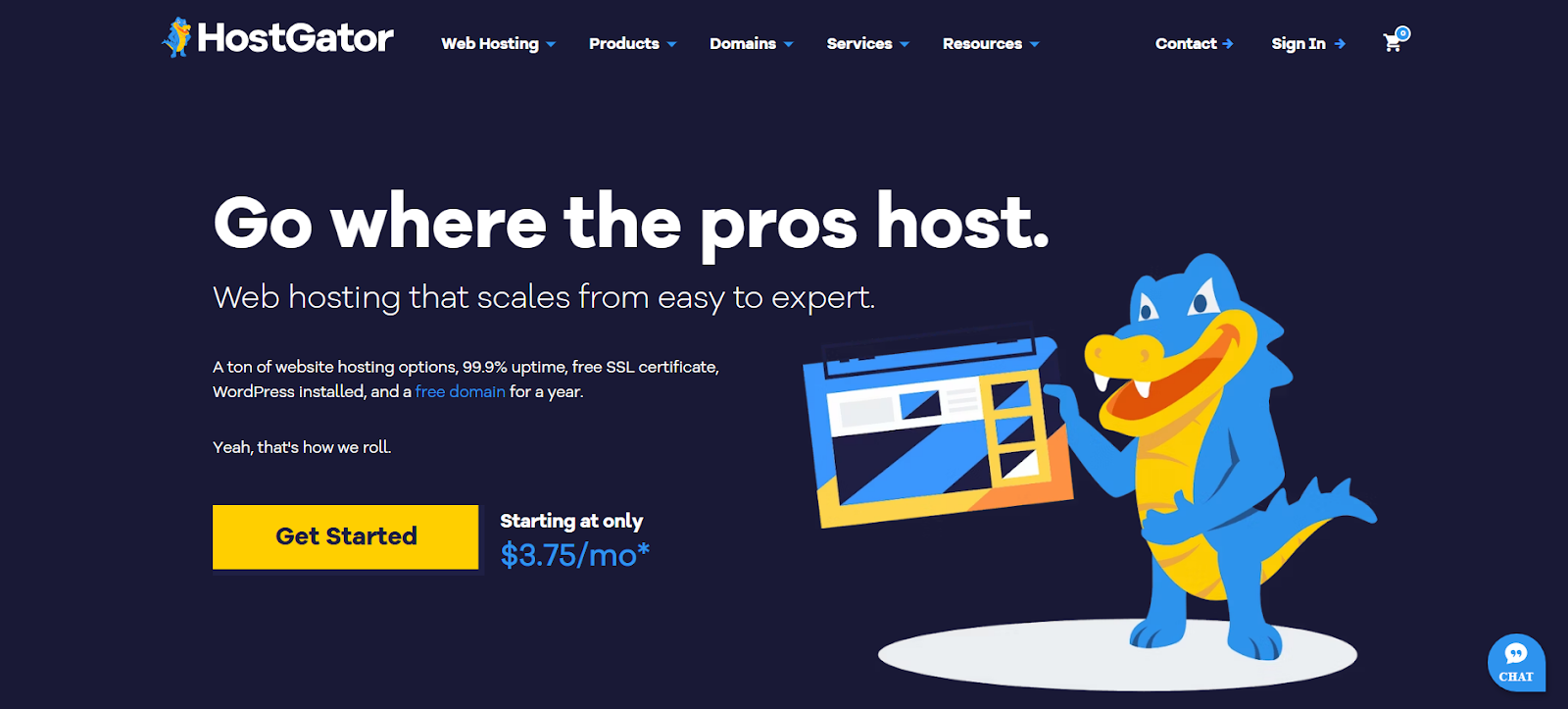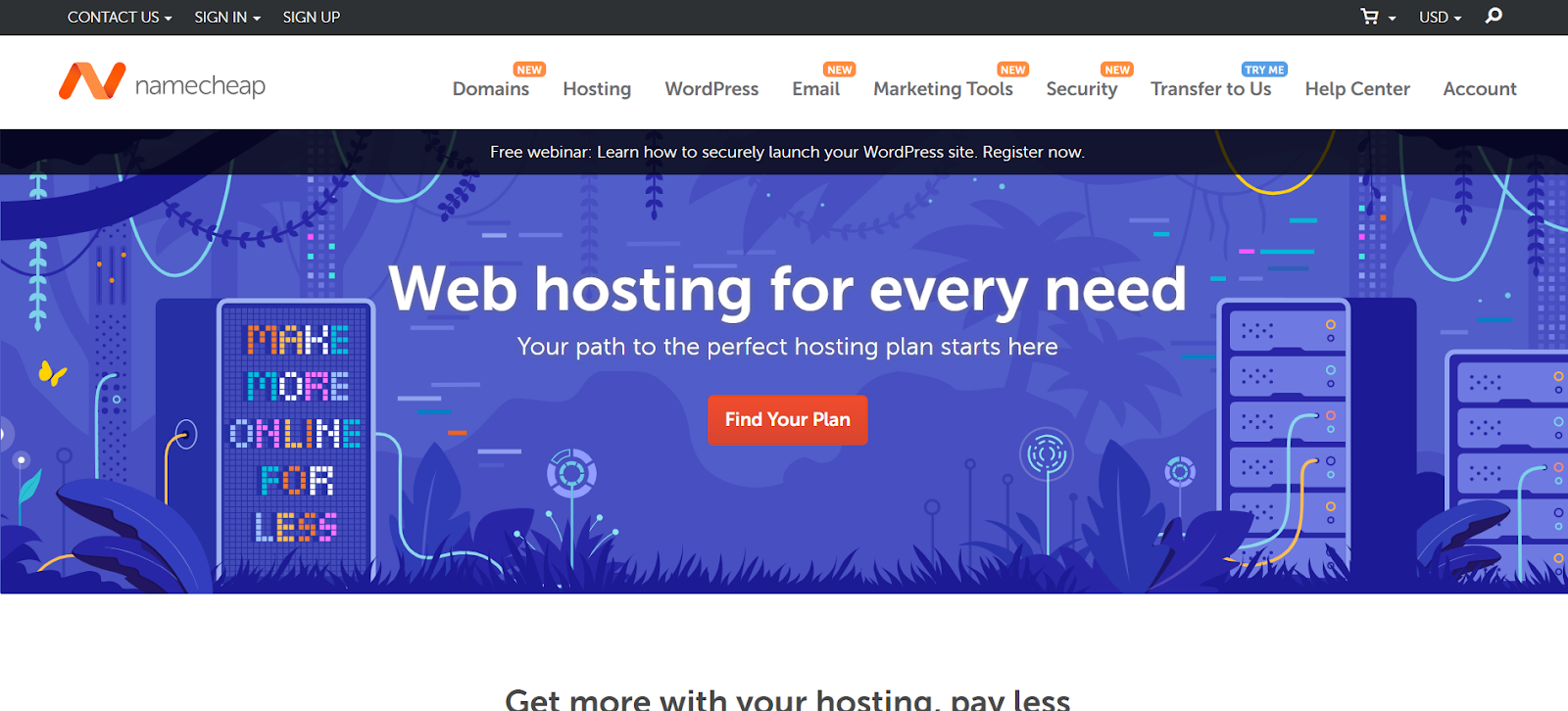Introduction: The Importance of Choosing the Right Web Hosting Provider
With countless options out there, how do you decide? This guide compares three popular choices: HostGator, Namecheap, and Elementor Hosting. We will examine what each offers to help you choose wisely in 2025.
Grow Your Sales
- Incredibly Fast Store
- Sales Optimization
- Enterprise-Grade Security
- 24/7 Expert Service

- Incredibly Fast Store
- Sales Optimization
- Enterprise-Grade Security
- 24/7 Expert Service
- Prompt your Code & Add Custom Code, HTML, or CSS with ease
- Generate or edit with AI for Tailored Images
- Use Copilot for predictive stylized container layouts

- Prompt your Code & Add Custom Code, HTML, or CSS with ease
- Generate or edit with AI for Tailored Images
- Use Copilot for predictive stylized container layouts
- Craft or Translate Content at Lightning Speed
Top-Performing Website
- Super-Fast Websites
- Enterprise-Grade Security
- Any Site, Every Business
- 24/7 Expert Service

Top-Performing Website
- Super-Fast Websites
- Enterprise-Grade Security
- Any Site, Every Business
- 24/7 Expert Service
- Drag & Drop Website Builder, No Code Required
- Over 100 Widgets, for Every Purpose
- Professional Design Features for Pixel Perfect Design

- Drag & Drop Website Builder, No Code Required
- Over 100 Widgets, for Every Purpose
- Professional Design Features for Pixel Perfect Design
- Marketing & eCommerce Features to Increase Conversion
- Ensure Reliable Email Delivery for Your Website
- Simple Setup, No SMTP Configuration Needed
- Centralized Email Insights for Better Tracking

- Ensure Reliable Email Delivery for Your Website
- Simple Setup, No SMTP Configuration Needed
- Centralized Email Insights for Better Tracking

- Ensure Reliable Email Delivery for Your Website
- Simple Setup, No SMTP Configuration Needed
- Centralized Email Insights for Better Tracking
HostGator vs Namecheap vs Elementor Hosting
Let’s explore what sets these hosting providers apart. We will look at their features, benefits, and ideal user base. Keep in mind, the “best” host truly depends on your website’s specific needs and your technical comfort.
Elementor Hosting: All-in-One Solution for WordPress Websites
Elementor Hosting delivers a managed hosting environment built specifically for WordPress websites. It particularly shines for sites using the Elementor page builder. The platform runs on the powerful Google Cloud Platform infrastructure. This provides excellent performance and reliability.
Key Features & Benefits:
- Managed WordPress Environment: Elementor Hosting handles many technical hosting tasks. This includes security checks, automatic backups, and WordPress core updates. This lets you focus more on creating content and designing your site.
- Optimized for Elementor: As the creators of Elementor, they fine-tuned the hosting to work perfectly with their page builder. This usually means better performance for sites built with Elementor.
- Google Cloud Platform: Hosting on GCP provides access to a high-speed, scalable, and secure global network. This helps your site load quickly and stay online.
- Built-in Caching & CDN: The service includes smart caching and Cloudflare’s Content Delivery Network (CDN) right out of the box. These features greatly speed up how fast your site loads for visitors around the world.
- Security Focus: You get essential security features like free SSL certificates, protection against DDoS attacks, and regular malware scans. Elementor Hosting manages these security layers for you.
- Integrated Support: Support comes from a team that understands both hosting and the Elementor platform. This is a big help when troubleshooting issues that involve both aspects.
- Elementor Core Included: Hosting plans automatically include the free Elementor Core plugin. This gives you the essential tools to start building pages. Important: Elementor Pro, with its advanced features and widgets, is sold separately. It does not come with Elementor Hosting plans.
Potential Considerations:
- The hosting is primarily tailored for WordPress websites using Elementor. While other WordPress sites can run here, the main advantages align with using the Elementor builder.
- As a managed service, you may have fewer options for deep server customization compared to unmanaged servers.
Who is it Best For?
Elementor Hosting stands out for:
- Users building their WordPress sites with the Elementor page builder.
- People who prefer managed hosting where technical upkeep is handled for them.
- Anyone prioritizing performance optimized specifically for WordPress and Elementor.
- Users wanting a single point of contact for both hosting and page builder support.
It offers a streamlined, performance-driven platform directly from the Elementor experts.
HostGator: A Widely Recognized Hosting Provider

HostGator is a very well-known name in the web hosting world. They offer a wide range of hosting services, suitable for beginners to large businesses.
Key Features & Benefits:
- Variety of Plans: HostGator offers shared hosting, WordPress hosting, VPS hosting, and dedicated servers. This selection helps users find a plan matching their traffic and technical requirements.
- User-Friendly Control Panel: Many HostGator plans use cPanel. This popular control panel makes it fairly easy to manage your hosting account, domains, email, and files.
- Uptime Guarantee: HostGator usually advertises an uptime guarantee (often 99.9%). This offers some peace of mind regarding website availability.
- Support Options: They typically offer customer support through phone, live chat, and an online knowledge base.
- Scalability: With various hosting types available, customers can upgrade their plans as their website traffic increases.
Potential Considerations:
- On shared hosting plans, performance can sometimes fluctuate based on the activity of other sites on the same server.
- While they offer WordPress-specific plans, the optimization might not be as deep as solutions built solely for WordPress, like Elementor Hosting.
Who is it Best For?
HostGator can be a solid choice for:
- Beginners seeking simple shared hosting plans.
- Users comfortable with the widely used cPanel interface.
- Website owners who need different hosting types (shared, VPS, dedicated) from the same company.
- Those looking for an established provider with multiple support options.
HostGator offers a wide range of hosting services that meet many different website needs.
Namecheap: Domains and Hosting Services

Namecheap first became known as a domain name registrar. However, they now offer a significant range of hosting services as well. They often focus on providing affordable options.
Key Features & Benefits:
- Affordable Options: Namecheap often provides competitive pricing. This is especially true for domain names and introductory hosting deals.
- Domain Management Integration: As a major registrar, managing your domains and hosting together can be convenient if you use Namecheap for both.
- Range of Hosting: They provide shared hosting, managed WordPress hosting (called EasyWP), VPS hosting, and dedicated servers.
- SSD Storage: Many Namecheap plans use faster Solid State Drives (SSDs). SSDs help websites load quickly compared to older hard drives.
- Website Migration: Namecheap frequently offers free website migration assistance. This can simplify moving an existing site to their platform.
- User Control Panel: Depending on your plan, you may get cPanel or Namecheap’s custom control panel, similar to the one for EasyWP.
Potential Considerations:
- Like many large providers, customer support experiences can vary.
- Their EasyWP managed WordPress hosting uses a custom dashboard. Users familiar with cPanel might need time to adjust.
Who is it Best For?
Namecheap may be a good fit for:
- Users looking primarily for budget-friendly hosting plans.
- Those who prefer managing domains and hosting in one place.
- Customers interested in trying their specific managed WordPress solution, EasyWP.
- Individuals or small businesses where cost is a major factor.
Namecheap delivers cost-effective domain and hosting packages, making web services accessible.
Selecting the Best Hosting Plan for You
Choosing the right host involves more than just picking a company name. You need to match the plan’s details to your website’s specific needs. Let’s review the key factors.
- Hosting Tuned for WordPress/WooCommerce: Running WordPress? Especially with WooCommerce for e-commerce? Look for hosting optimized for it. This often includes specific server settings, caching, and security tailored to WordPress. Elementor Hosting strongly emphasizes this.
- Define Your Website’s Hosting Needs: What will your site do? Is it a simple blog or a complex online store? Estimate your current and future traffic. Knowing this helps you choose the right amount of resources (CPU, RAM, storage).
- Planning Hosting for Future Site Growth: Your host should support your growth. Can you easily upgrade your plan? Does the provider offer more powerful options if needed? Think about scalability early on.
- Managing Your Web Hosting Budget Wisely: Hosting prices range greatly. Basic shared hosting is inexpensive, but ensure it meets your needs. Managed plans cost more but often save time and offer better speed. Balance the cost against the value provided.
- Why Hosting Reliability & Uptime Matter: Downtime costs you visitors and potentially money. Look for hosts with strong uptime records (aim for 99.9 %+) and reliable infrastructure, like the Google Cloud used by Elementor Hosting.
- Faster Speeds with NVMe Server Storage: Modern hosts often use NVMe SSDs. They are much faster than older drives. Faster storage helps your website load quickly. Ask if a potential host uses NVMe technology.
- The Value of 24/7 Expert Hosting Support: When problems arise, quick help is essential. Check for 24/7 support via channels you like (chat, phone). Consider the support quality – are they experts on your platform (e.g., WordPress)?
- Need for an Easy-to-Use Control Panel: A good control panel simplifies managing your hosting. You’ll use it for tasks like managing files, emails, and databases. Make sure it feels intuitive for you.
Considering these points helps you find a plan that truly fits your project, going beyond just brand recognition.
Key Factors for Smooth Hosting Migration
Moving your website to a new host might seem complex. But good planning makes it much easier. Here’s what to keep in mind:
- Understanding the Data Transfer Steps: Usually, you need to back up site files and databases from your old host. Then, upload them to the new one. Some hosts offer tools or services for this. Understand the required steps.
- Handling Your Domain Name During Moves: You must update your domain’s DNS records. These tell browsers where your site is hosted. Point them to the new server’s IP address. DNS changes can take up to 48 hours to propagate globally. Plan accordingly.
- Choosing Where to Host Your Emails: Decide about your email. Will you keep it with the old host, move it to the new one, or use a separate service, such as Google Workspace? Moving emails often involves backing them up and restoring them.
- Tips to Prevent Downtime When Migrating: Minimize disruption:
- Upload and test your site on the new host before changing the DNS.
- Lower your DNS records’ TTL (Time To Live) value hours before the switch.
- Schedule the DNS change during off-peak traffic hours.
- Using Simple One-Click Migration Tools: Many WordPress hosts, including Elementor Hosting, offer plugins or tools to simplify the migration process. They often automate file and database transfers, reducing manual work.
A well-managed migration keeps your site accessible to visitors.
Boosting Site Performance on New Hosting
Switching hosts is a perfect time to improve your site’s speed. Even with great hosting, site-level optimizations make a difference.
- Actionable Performance Tuning Tactics: Optimize your images by using compression. Minify CSS and JavaScript files (make them smaller). Use browser caching effectively. These steps reduce download sizes for visitors.
- Using Caching & CDN for Faster Loading: Quality hosts like Elementor Hosting provide server caching and CDN integration. Make sure they are active. Caching serves stored copies of your site faster. A CDN delivers content from servers close to your visitors.
- Gains from Cloud Infrastructure Hosting: Hosting on cloud platforms like Google Cloud (used by Elementor Hosting) offers built-in scalability and reliability. They handle traffic spikes better than traditional single servers.
- Essential Regular Maintenance Routines: Keep WordPress, themes, and plugins updated. Remove unused software. Optimize your database periodically. Good maintenance prevents slowdowns.
Great performance comes from combining quality hosting with smart website practices.
Essential Web Hosting Security Measures
Website security is vital. Your host plays a big part, but understanding key security measures helps you stay protected.
- Securing Your Site with SSL and HTTPS: An SSL certificate encrypts data between your site and visitors. HTTPS (enabled by SSL) shows your site is secure. Good hosts provide free SSL certificates. Always keep HTTPS active.
- Setting Up Your Hosting Firewall Rules: A Web Application Firewall (WAF) blocks malicious traffic before it hits your site. Many managed hosts include a WAF. Know what protection it provides.
- Performing Regular Security Checks: Use security plugins or services to scan for malware often. Some hosts also perform server-level scans.
- Backup Strategies & Disaster Recovery: Regular backups are crucial. Ensure your host offers automatic daily backups. Know how to restore them if needed. Keeping your own backups off-site is also smart.
- WAF, DDoS & BotNet Defense Explained: Look for protection beyond basic firewalls. This includes defense against DDoS attacks (which overwhelm your server) and malicious bots. Providers like Elementor Hosting often include this.
- Adding Multi-Factor Auth Security: Use Multi-Factor Authentication (MFA) for your hosting and website admin logins. It adds a strong security layer beyond just passwords.
- Importance of 24/7 Security Monitoring: Reliable hosts monitor their systems 24/7 for threats. This helps catch problems early.
- Keeping Software Safe with Auto Updates: Managed hosting often allows automatic updates for WordPress core software. This is convenient but test updates on a staging site first if possible.
- Secure Database & File Transfer Access: Always use secure connections like SFTP (not plain FTP). Use strong database passwords and limit user access.
- Automatic Security Patch Management: Your host should quickly apply security patches to server software. This is a key benefit of managed hosting services.
- Using Dev/Stage/Prod Environments Safely: Use a staging site (a copy of your live site) to test changes before they go live. Some hosts offer easy staging tools.
Security involves both you and your host working together. Choose a host that prioritizes security.
What’s Next for the Web Hosting Industry
The world of web hosting is constantly evolving. Knowing the trends helps you plan for the future.
- New and Upcoming Hosting Technologies: We can expect faster hardware, improved networking (such as HTTP/3), and new software designed for increased speed and reliability.
- Eco-Friendly Sustainable Data Centers: More providers focus on green hosting. They use renewable energy and build more efficient data centers to reduce environmental impact.
- AI and Automation in Hosting Management: Companies are increasingly using AI for tasks such as performance monitoring, threat detection, resource allocation, and automated support.
- Rise of Green Energy Hosting Servers: Related to sustainability, expect more servers powered directly by renewable sources like solar and wind energy.
The future of hosting looks faster, smarter, and greener.
Conclusion
Choosing the right web host is vital for your online presence. It impacts speed, reliability, security, and growth potential. While many providers exist, the best fit depends on your unique situation.
For those building with WordPress, especially with the Elementor page builder, an integrated solution provides clear benefits. Elementor Hosting offers a managed environment on the high-performance Google Cloud Platform. It is specifically optimized for WordPress and the Elementor plugin. It handles technical tasks like caching, CDN, security, and backups. This lets creators focus on building outstanding websites, confident in their hosting foundation.
Elementor Hosting streamlines the experience, delivering performance and cohesive support from a team that understands the entire platform.
Looking for fresh content?
By entering your email, you agree to receive Elementor emails, including marketing emails,
and agree to our Terms & Conditions and Privacy Policy.

